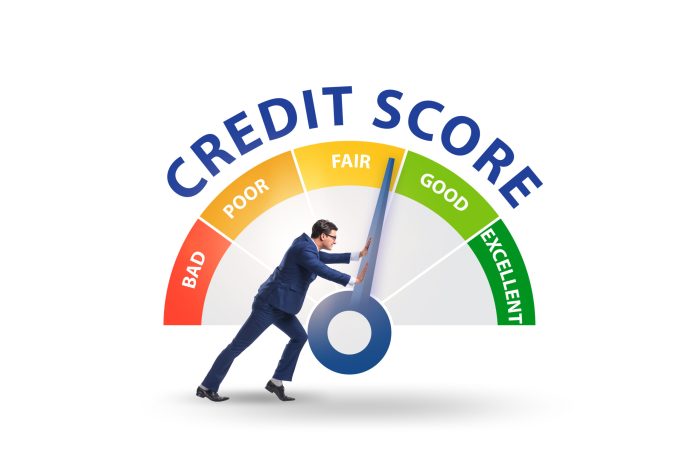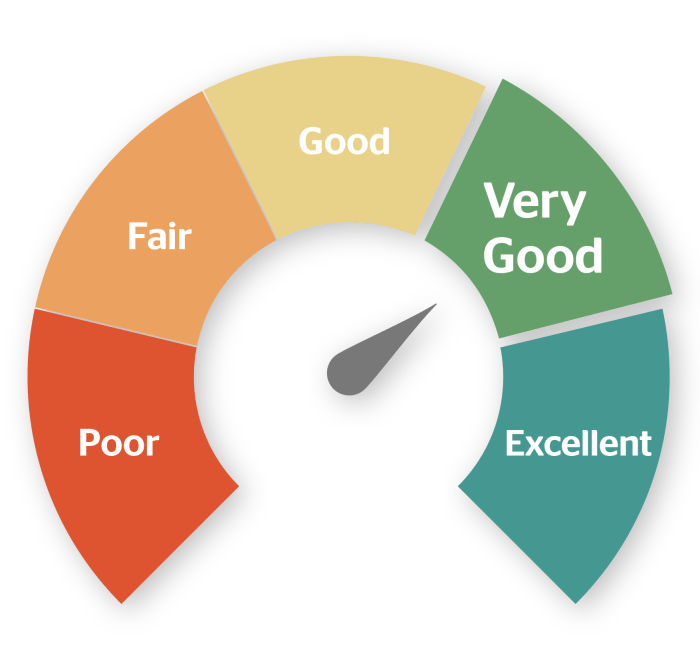Credit score improvement is crucial for your financial well-being. By understanding the factors affecting your credit score and implementing effective strategies, you can enhance your financial standing and access better opportunities.
Learn how to elevate your credit score, monitor it regularly, and take necessary steps to repair any damage in your credit history. Let’s dive into the world of credit score improvement and unlock the secrets to financial success.
Understanding Credit Scores
A credit score is a numerical representation of an individual’s creditworthiness, which is used by lenders to determine the likelihood of that person repaying their debts. It is calculated based on various factors and helps creditors assess the risk of lending money to a particular individual.
Factors Influencing Credit Scores
Several factors influence a person’s credit score, including:
- Payment history: This includes whether payments are made on time, any missed or late payments, and the frequency of delinquencies.
- Credit utilization: The amount of credit being used compared to the total credit available plays a significant role in determining a credit score.
- Length of credit history: The longer the credit history, the more data available for assessing creditworthiness.
- Types of credit: Having a mix of credit types, such as credit cards, loans, and mortgages, can positively impact a credit score.
- New credit inquiries: Opening multiple new credit accounts within a short period can negatively affect a credit score.
Importance of Having a Good Credit Score
A good credit score is essential for obtaining favorable terms on loans, mortgages, and credit cards. It can also impact insurance premiums, rental applications, and even job opportunities. Maintaining a good credit score demonstrates financial responsibility and can save individuals money in the long run.
Ways to Improve Credit Score

To improve your credit score, you need to follow some key strategies that can positively impact your creditworthiness. By implementing these tips, you can enhance your credit score over time.
Benefits of Paying Bills on Time
- Paying bills on time is crucial for improving your credit score as it demonstrates responsible financial behavior.
- Timely payments show lenders that you are reliable and can be trusted to repay borrowed money.
- A history of on-time payments can boost your credit score significantly over time.
- Late payments can have a negative impact on your credit score, so it’s essential to prioritize timely payments.
Impact of Credit Utilization and How to Manage It
- Credit utilization refers to the ratio of your credit card balances to your credit limits. It plays a significant role in determining your credit score.
- High credit utilization can negatively impact your credit score, so it’s essential to keep your balances low relative to your credit limits.
- Experts recommend keeping your credit utilization below 30% to maintain a healthy credit score.
- To manage credit utilization effectively, you can consider paying down existing balances, requesting a credit limit increase, or using multiple credit cards strategically.
Monitoring Credit Score

It’s crucial to keep tabs on your credit score regularly to stay informed about your financial health and to catch any errors or suspicious activity early on.
There are several free methods available to check your credit score, including websites like Credit Karma, Credit Sesame, and AnnualCreditReport.com. These platforms allow you to access your credit score and report without any cost.
Comparison of Credit Monitoring Services
- Credit Karma: Offers free credit scores and reports from two major credit bureaus, TransUnion and Equifax. It also provides credit monitoring alerts and personalized recommendations to improve your score.
- Credit Sesame: Provides free credit scores and reports, as well as identity theft protection. It also offers personalized tips on how to increase your credit score.
- AnnualCreditReport.com: Allows you to request a free credit report from each of the three major credit bureaus – Experian, TransUnion, and Equifax – once a year. While it doesn’t provide a credit score, reviewing your report can help you identify any errors or discrepancies.
Repairing Credit History: Credit Score Improvement
Repairing a damaged credit history can be a challenging but necessary task for anyone looking to improve their financial standing. Whether it’s due to missed payments, defaults, or other negative marks on your credit report, there are steps you can take to start the process of rebuilding your credit.
Steps to Repair a Damaged Credit History, Credit score improvement
- Obtain a copy of your credit report from all three major credit bureaus (Equifax, Experian, TransUnion) to review and understand the negative items affecting your credit score.
- Dispute any inaccuracies or errors on your credit report by contacting the credit reporting agencies and providing supporting documentation.
- Make a plan to address any outstanding debts or delinquent accounts by negotiating with creditors for payment arrangements or settlements.
- Consistently make on-time payments for all current accounts to demonstrate responsible financial behavior moving forward.
- Patiently wait for negative items to fall off your credit report over time, as most negative marks have a limited reporting period.
Credit Repair Companies vs. DIY Credit Repair
Credit repair companies often charge high fees for services that consumers can do themselves for free.
- DIY credit repair involves directly contacting creditors and credit bureaus to address negative items, while credit repair companies may offer assistance but at a cost.
- Consumers should be cautious of credit repair companies that promise quick fixes or guaranteed results, as improving credit takes time and effort.
Strategies for Dealing with Negative Items on a Credit Report
- Communicate with creditors to negotiate payment plans, settlements, or removal of negative items in exchange for full or partial payment.
- Consider debt consolidation or credit counseling services to help manage and pay off debts more effectively.
- Focus on building positive credit history by using credit responsibly and maintaining low credit card balances.

